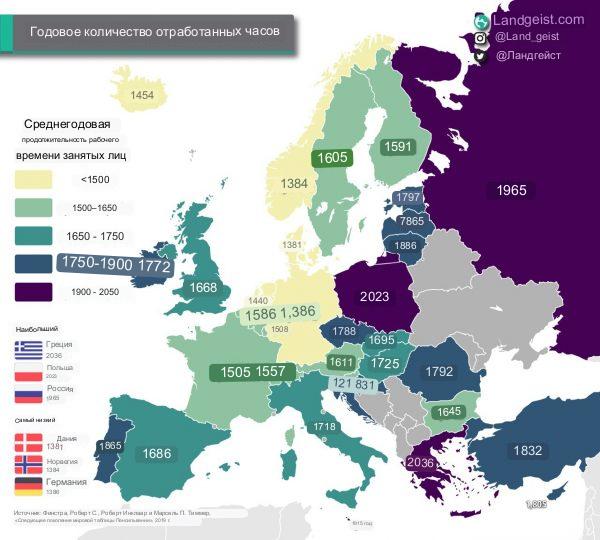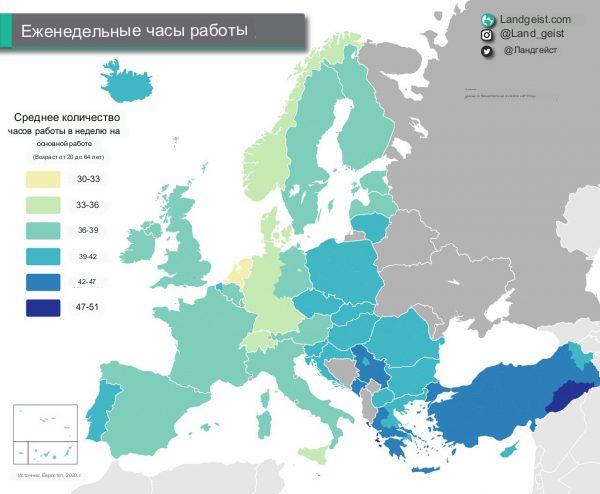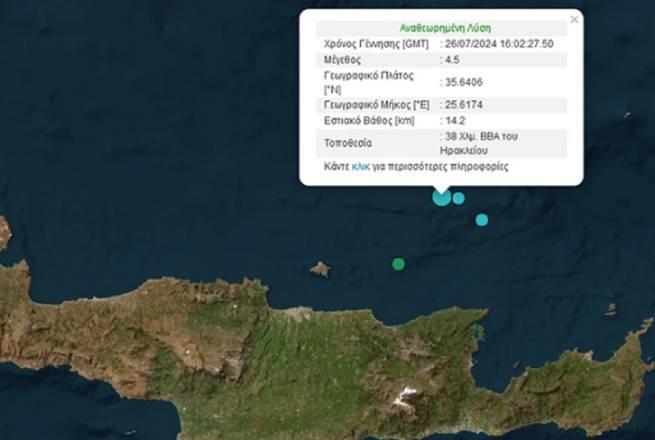Experts from the University of Groningen analyzed Eurostat data and found that Greece has the highest average working hours per year – 2036 hours!
Our country is followed by Poland and Russia, with an average of 2023 and 1965 hours. In the map below we can see the overall average number of hours worked per year. The Netherlands, Norway, Denmark, Germany and Switzerland have the lowest average working hours. One of the main reasons for this “paradox” is the large proportion of part-time workers, especially in the Netherlands and Switzerland.

In contrast, workers in Greece, Poland and Russia work the most hours per year, according to economists Robert C. Feenstra and Robert Inklaar. Spain is in the middle. The average of 1,686 hours of work per year corresponds to the UK (1,668), slightly more than France (1,505) and Germany (1,386), and less than Italy (1,718 hours) or Portugal (1,865).
Greece has the highest average working hours, followed by Poland and Russia, with 2,023 and 1,965 hours respectively.
Nevertheless the number of hours worked does not necessarily mean better financial performance. Workers in countries such as Denmark, Switzerland and Norway produce much higher GDP per hour worked.
Longer working hours do not correlate with increased production. Russian workers rank third in Europe in terms of average annual hours worked, but they are also the second least productive workers in Europe in terms of GDP per hour worked.
Greece ranks first among countries in the number of hours Europeans work on average per week: 47–51 hours in the 20–65 age group.
The study found that the Dutch work much less than residents of any other country. There the average working week is from 30 to 33 hours. In Switzerland, Norway, Denmark, and parts of Germany and Italy, the workweek is relatively short, ranging from 33 to 36 hours.

Why is the employment rate so much lower in the Netherlands than in other countries? Well, there is a very clear explanation for this: part-time work. Nowhere in Europe are there so many jobs with part-time, as in the Netherlands: 47.6% of workers work part-time. In Switzerland – 39.4%, and in Austria 23.9%. In Scandinavia and Germany the figure is between 20 and 25%. In the rest of Europe it is below 20% or even 10%. The majority of these part-time workers in the Netherlands are women.
The longest average working week is found mainly in Eastern Europe, but especially in Serbia, Greece, Montenegro and Turkey. Most people work more than 42 hours a week.
We can also see some very interesting differences across the countries studied. Germany stands out first. We can see a very clear difference between West and East Germany: in the East, people work longer than in the West. Another example is West Flanders in Belgium, where people work slightly longer than in the rest of the country. In London, people also work longer than in other cities in the country, although this is probably not surprising for the British.
In Serbia we see the opposite. In Belgrade, people actually work less than in the rest of the country. Sicily is also an interesting destination that stands out because it has fewer weeks of operation than the rest of Italy.







More Stories
Digital Currencies: Global Control or New Opportunities? What's Behind the Introduction of Digital Money
BRICS + ACEAN: A New Era of World Currencies
How much does a square meter of housing cost in the Cyclades